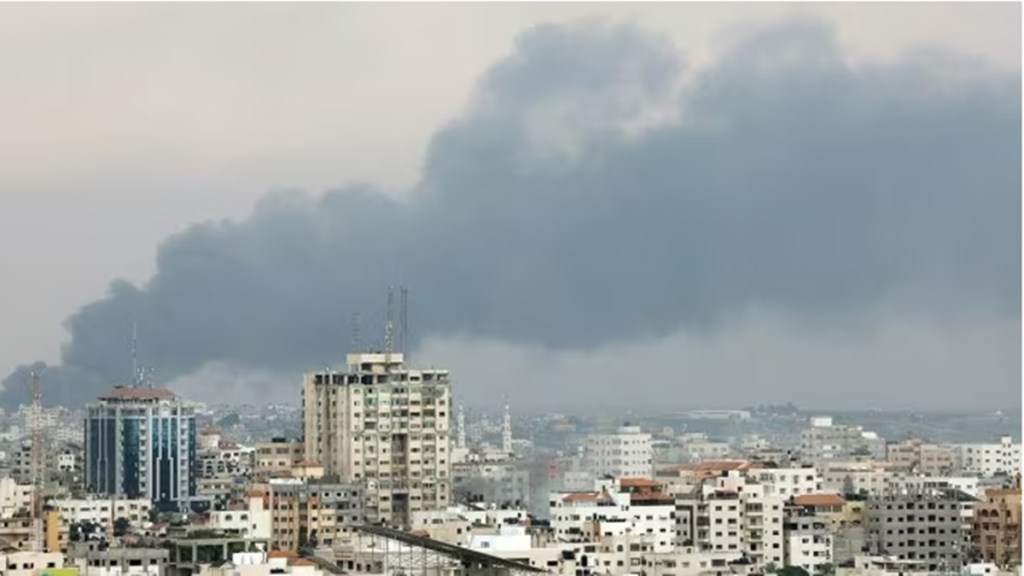One month has passed, and during this time, civilians in both Gaza and Israel have been enduring an overwhelming burden of suffering and loss, an intolerable reality that must be halted.
Gaza remains under a military siege, leading to a severe deprivation of the most basic necessities for its people—food, water, and medicine. While some limited aid has made its way into the region, it falls far short of meeting the essential needs of the community. There is an urgent and compelling requirement for safe, consistent humanitarian access throughout Gaza.
Massive bombardments have inflicted extensive damage upon Gaza’s civilian infrastructure, a legacy of hardship that may impact future generations. Priority must be given to the immediate restoration of essential services, such as healthcare, access to clean water, and electricity. These are fundamental aspects of survival that cannot be delayed.
The agony that children in this conflict have had to endure is particularly distressing. Children have been forcibly separated from their families and held captive in a situation they bear no responsibility for. In Gaza, surgeons from the International Committee of the Red Cross (ICRC) are treating young children with skin charred by extensive burns. The profound suffering, the sight of deceased and wounded children, is a moral failing that should haunt us all.
In this dire circumstance, it is incumbent upon all parties to honor their obligations under international humanitarian law. The conduct of military operations should spare civilians, adhering not just to the letter but also the spirit of the law.
An immediate imperative is the release of hostages, who bear no responsibility for this conflict. The ICRC reiterates its commitment as a neutral party, prepared to facilitate any future release operation. In the interim, unceasing efforts are being made to encourage Hamas and other influential actors to grant access to ICRC personnel to visit these hostages, as stated by President Mirjana Spoljaric.
The disheartening scenes of damaged hospitals and ambulances are, without question, unacceptable. Over the past month, the tragic loss of medics from the Palestine Red Crescent and Magen David Adom, as well as UN and other humanitarian workers, has cast a somber shadow. Medical facilities are meant to be sanctuaries for the sick and wounded, as well as for the numerous displaced individuals seeking refuge. The protection of these sanctuaries is not merely a moral imperative, it is an inescapable necessity, for the human cost of failing to do so is insufferable.
One month later, families are left grappling with the agonizing uncertainty regarding the well-being of their loved ones. The conflict has inflicted a heavy toll, resulting in casualties, injuries, and the displacement of a multitude of men, women, and children. It is incumbent upon both sides to engage in immediate de-escalation to forestall further suffering.
In the meantime, the International Committee of the Red Cross (ICRC) is deeply disturbed by a recent incident involving its humanitarian convoy in Gaza City. The ICRC takes this opportunity to remind all parties involved of their binding commitment under international humanitarian law to consistently respect and safeguard humanitarian workers.
The convoy, comprising five trucks and two ICRC vehicles, was tasked with delivering life-saving medical supplies to healthcare facilities, including Al Quds Hospital of the Palestinian Red Crescent Society. Tragically, it came under fire, resulting in damage to two trucks and causing a driver to sustain minor injuries.
William Schomburg, head of the ICRC sub-delegation in Gaza, emphasizes the incompatibility of these conditions with humanitarian work. He asserts, ‘We are present to provide urgent assistance to those in need, and the imperative of ensuring that vital aid reaches medical facilities is a binding obligation under international humanitarian law.’
Following this incident, the convoy adjusted its route and successfully delivered the critical medical supplies to Al Shifa Hospital. Subsequently, the ICRC convoy accompanied six ambulances transporting critically injured patients to the Rafah crossing.”

